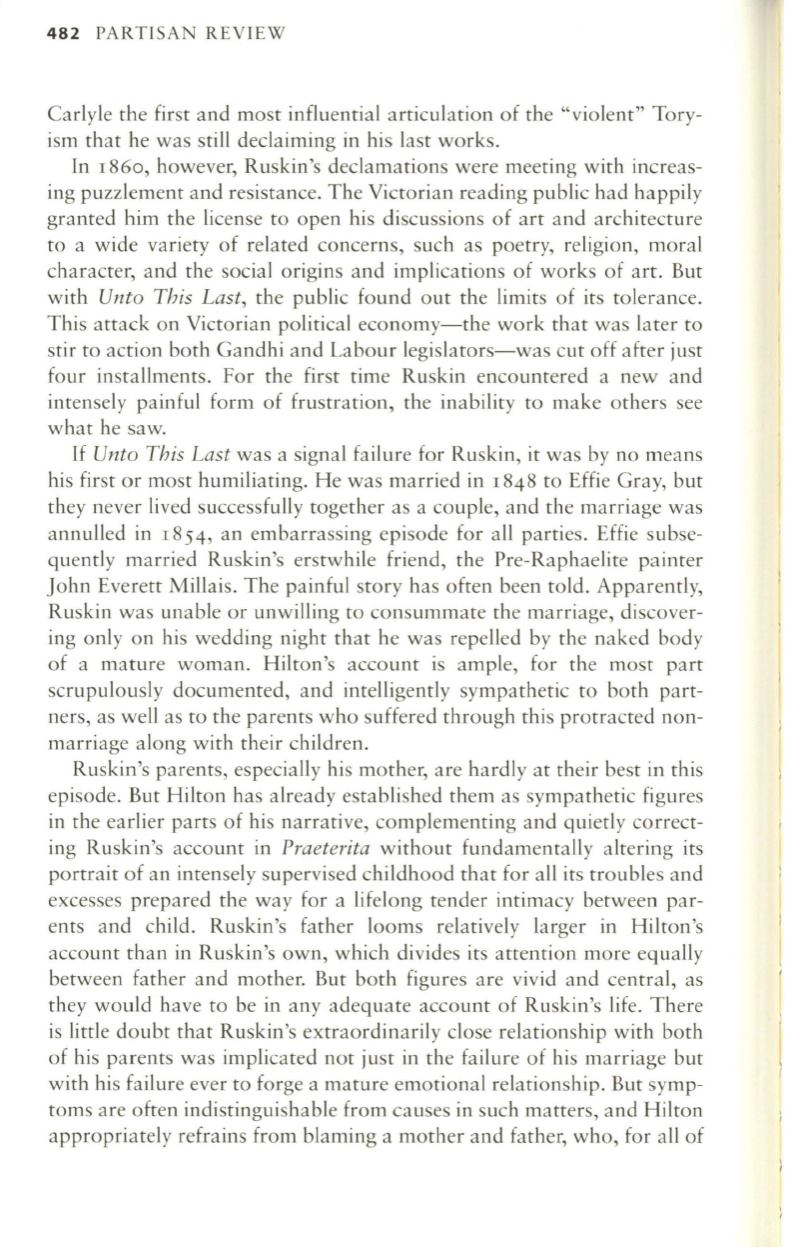
482
PARTISAN REVIEW
Carlyle the first and most influential articulation of the "violent" Tory–
ism that he was still declaiming in his last works.
In
1860,
however, Ruskin's declamations were meeting with increas–
ing puzzlement and resistance. The Victorian reading public had happily
granted him the license to open his discussions of art and architecture
to a wide variety of related concerns, such as poetry, religion, moral
character, and the social origins and implications of works of art. But
with
Unto This Last,
the public found out the limits of its tolerance.
This attack on Victorian political economy-the work that was later to
stir to action both Gandhi and Labour legislators-was cut off after just
four installments. For the first time Ruskin encountered a new and
intensely painful form of frustration, the inability to make others see
what he saw.
If
Unto This Last
was a signal failure for Ruskin, it was by no means
his first or most humiliating. He was married in
1848
to Effie Gray, but
they never lived successfully together as a couple, and the marriage was
annulled in
1854,
an embarrassing episode for all parties. Effie subse–
quently married Ruskin's erstwhile friend, the Pre-Raphaelite painter
John Everett Millais. The painful story has often been told. Apparently,
Ruskin was unable or unwilling to consummate the marriage, discover–
ing only on his wedding night that he was repelled by the naked body
of a mature woman. Hilton's account is ample, for the most part
scrupulously documented, and intelligently sympathetic to both part–
ners, as well as to the parents who suffered through this protracted non–
marriage along with their children.
Ruskin's parents, especially his mother, are hardly at their best in this
episode. But Hilton has already established them as sympathetic figures
in the earlier parts of his narrative, complementing and quietly correct–
ing Ruskin's account in
Praeterita
without fundamentally altering its
portrait of an intensely supervised childhood that for all its troubles and
excesses prepared the way for a lifelong tender intimacy between par–
ents and child. Ruskin's father looms relatively larger in Hilton's
account than in Ruskin's own, which divides its attention more equally
between father and mother. But both figures are vivid and central, as
they would have to be in any adequate account of Ruskin's life. There
is little doubt that Ruskin's extraordinarily close relationship with both
of his parents was implicated not just in the failure of his marriage but
with his failure ever to forge a mature emotional relationship. But symp–
toms are often indistinguishable from causes in such matters, and Hilton
appropriately refrains from blaming a mother and father, who, for all of


